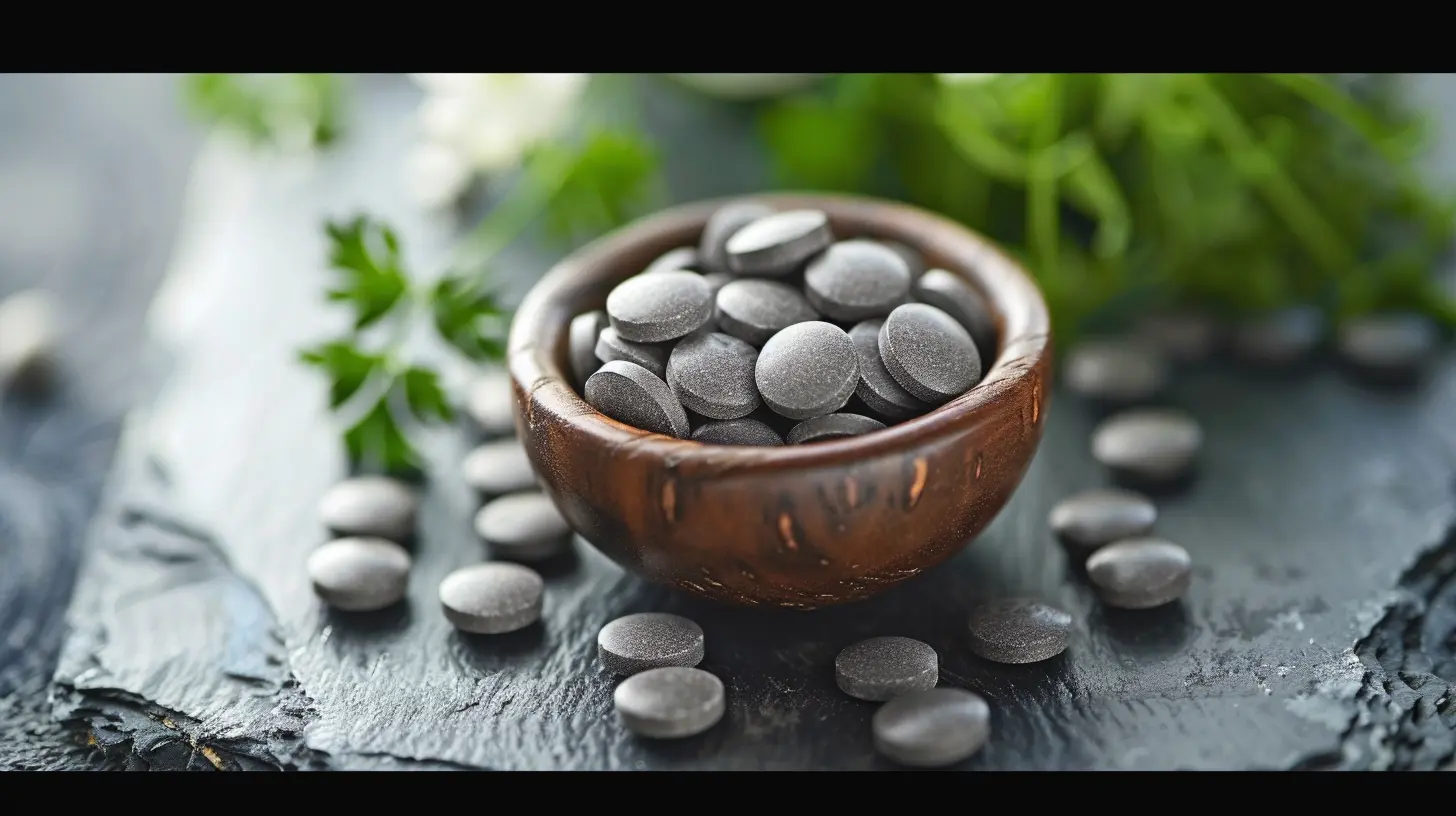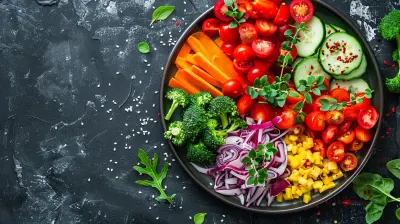Zinc: The Immune System's Best Friend
11 September 2025
When it comes to boosting your immune system and staying healthy year-round, zinc doesn’t always get the spotlight it deserves. Sure, we hear a lot about vitamin C, probiotics, and even garlic, but zinc? It often flies under the radar. But here's the truth: zinc might just be the behind-the-scenes superhero keeping your body’s defense system in check.
So, let’s dive into why zinc is the immune system’s best friend, how it works, where to get it, and why you should seriously consider your zinc levels if you’re all about staying strong, energized, and illness-free.
What Is Zinc And Why Does It Matter?
Zinc is a trace mineral, which means your body only needs a small amount — but don’t let that fool you. This tiny nutrient plays a huge role in your overall health. It’s involved in hundreds of processes — from wound healing and cell growth to hormone production and, of course, immune function.Think of zinc as the manager of your immune system. It makes sure everything runs smoothly, and when pathogens (like viruses or bacteria) show up uninvited, zinc helps your immune cells gear up for battle. Without enough zinc, your immune response gets sluggish, and that’s not what you want when cold and flu season rolls around.
How Zinc Supports The Immune System
Alright, let's get specific. How exactly does zinc help your immune system?1. Activates Immune Cells
Zinc plays a major role in the development and activation of immune cells like T-cells and natural killer (NK) cells. These are the frontline soldiers of your immune system. Without enough zinc, they don’t function properly, making you more vulnerable to infections.2. Shortens the Duration of Colds
Ever noticed that many over-the-counter cold remedies contain zinc? That’s because zinc has been shown to reduce the length and severity of the common cold — especially when taken at the first sign of symptoms. It helps stop the virus from multiplying and boosts your body’s ability to clear the infection faster.3. Reduces Inflammation
Zinc has anti-inflammatory properties, which means it calms things down when your immune system goes into overdrive. This is especially important for preventing chronic inflammation, which is linked to diseases like heart disease, diabetes, and even cancer.4. Supports Wound Healing
Got a cut, scrape, or even a surgical incision? Your body uses zinc to repair tissue and heal wounds. A healthy immune system isn’t just about fighting off viruses — it’s about rebuilding and recovering too.
Signs You Might Be Low In Zinc
Zinc deficiency is more common than you might think, especially if you follow a plant-based diet, have certain chronic illnesses, or are pregnant. The problem is, the symptoms are subtle and can mimic other issues.Here are some common signs of low zinc levels:
- Frequent colds or infections
- Slow wound healing
- Loss of taste or smell
- Hair thinning
- Skin rashes or acne
- Loss of appetite
- Brain fog or memory problems
Sound familiar? Don't panic, but it might be time to check your zinc intake.
Who Needs More Zinc?
While everyone needs zinc, certain groups may need to pay closer attention to their intake:Vegans and Vegetarians
Plant-based diets are awesome for various reasons, but they can be low in zinc. Plants do contain zinc, but it’s harder for your body to absorb compared to animal products. That’s because of phytates — compounds found in grains and legumes that can block zinc absorption.Pregnant and Breastfeeding Women
During pregnancy and lactation, your body needs more zinc to support the growing baby and milk production. A deficiency at this time can have serious consequences for both mom and baby.Older Adults
As we age, our ability to absorb nutrients like zinc declines — plus, many older adults eat less zinc-rich foods. This can weaken the immune system even more, increasing the risk of infections and slow healing.People with Digestive Issues
Conditions like Crohn’s disease, ulcerative colitis, or even frequent diarrhea can interfere with zinc absorption. If your gut isn’t happy, your zinc levels probably aren’t either.Best Food Sources of Zinc
So, how do you make sure you're getting enough zinc? Good news — it’s not all about supplements. There are plenty of tasty, zinc-rich foods to include in your diet.Animal-Based Sources (High Absorption)
- Oysters (top of the list!)- Beef
- Chicken
- Turkey
- Eggs
- Dairy products
Plant-Based Sources (Lower Absorption)
- Chickpeas- Lentils
- Pumpkin seeds
- Cashews
- Quinoa
- Tofu
- Whole grains
Tip: If you’re plant-based, soaking or sprouting beans, seeds, and grains can help reduce phytates and increase zinc absorption.
Should You Take a Zinc Supplement?
Sometimes food isn’t quite enough, and a supplement can help fill the gap — especially during cold and flu season or if you’re dealing with a deficiency. But here’s the catch: more isn’t always better.Too much zinc can actually backfire and suppress your immune system, cause nausea, and even lead to copper deficiency. Yikes.
Recommended Daily Intake:
- Adult men: 11 mg/day- Adult women: 8 mg/day
- Pregnant women: 11-12 mg/day
You’ll find zinc in multivitamins, immune-support blends, or as standalone supplements like zinc picolinate, gluconate, or citrate. When in doubt, chat with your doctor or a registered dietitian before starting any supplements.
Zinc and COVID-19: What’s the Deal?
You’ve probably heard zinc popping up a lot more since the start of the COVID-19 pandemic — and for good reason. Early research suggested that zinc might help reduce the severity of respiratory infections, and some studies even looked at zinc as part of COVID-19 treatment protocols.While we don’t have enough concrete evidence to call it a “cure” (spoiler: it’s not), maintaining healthy zinc levels is still a smart way to support your immune health. Whether it’s COVID-19, the common cold, or any other bug, zinc helps your body stay ready to fight.
Zinc — More Than Just Immune Support
Let’s not forget — zinc does way more than help fend off sniffles. This mineral wears a lot of hats:- Supports skin health – Zinc regulates oil production, making it a go-to for acne and other skin conditions.
- Improves cognitive function – Low zinc levels have been linked to poor memory and concentration.
- Boosts mood – Some studies suggest that zinc plays a role in neurotransmitter function and can help with depression and anxiety.
- Aids digestion – Zinc is needed for producing stomach acid and digestive enzymes.
Not bad for a "trace" mineral, right?
Easy Ways to Add More Zinc to Your Routine
Okay, let’s get practical. How can you naturally get more zinc without overcomplicating your life?- Sprinkle pumpkin seeds on your salad or oatmeal
- Add lentils and chickpeas to soups and stews
- Snack on a hard-boiled egg or string cheese
- Make a smoothie with Greek yogurt and nut butter
- Grill lean beef or chicken a few times a week
- Try zinc-fortified cereals or breads
And if you’re really on the go? A well-chosen supplement can be your backup plan.
Final Thoughts
Zinc isn’t the flashiest nutrient out there — it's not trendy like collagen or exotic like ashwagandha — but it's absolutely essential. Think of your immune system like a car. Zinc is the spark plug that keeps the engine running smoothly. Without it, everything sputters and slows down.So whether you're trying to avoid getting sick, speed up recovery, support your skin, or just feel your best, give zinc the attention it deserves. Your immune system will thank you.
all images in this post were generated using AI tools
Category:
MineralsAuthor:

Arthur McKeever
Discussion
rate this article
1 comments
Olive McGuffey
Great insights! Zinc truly boosts our immunity!
September 20, 2025 at 4:49 PM

Arthur McKeever
Thank you! I'm glad you found the insights valuable. Zinc is indeed essential for a healthy immune response!


